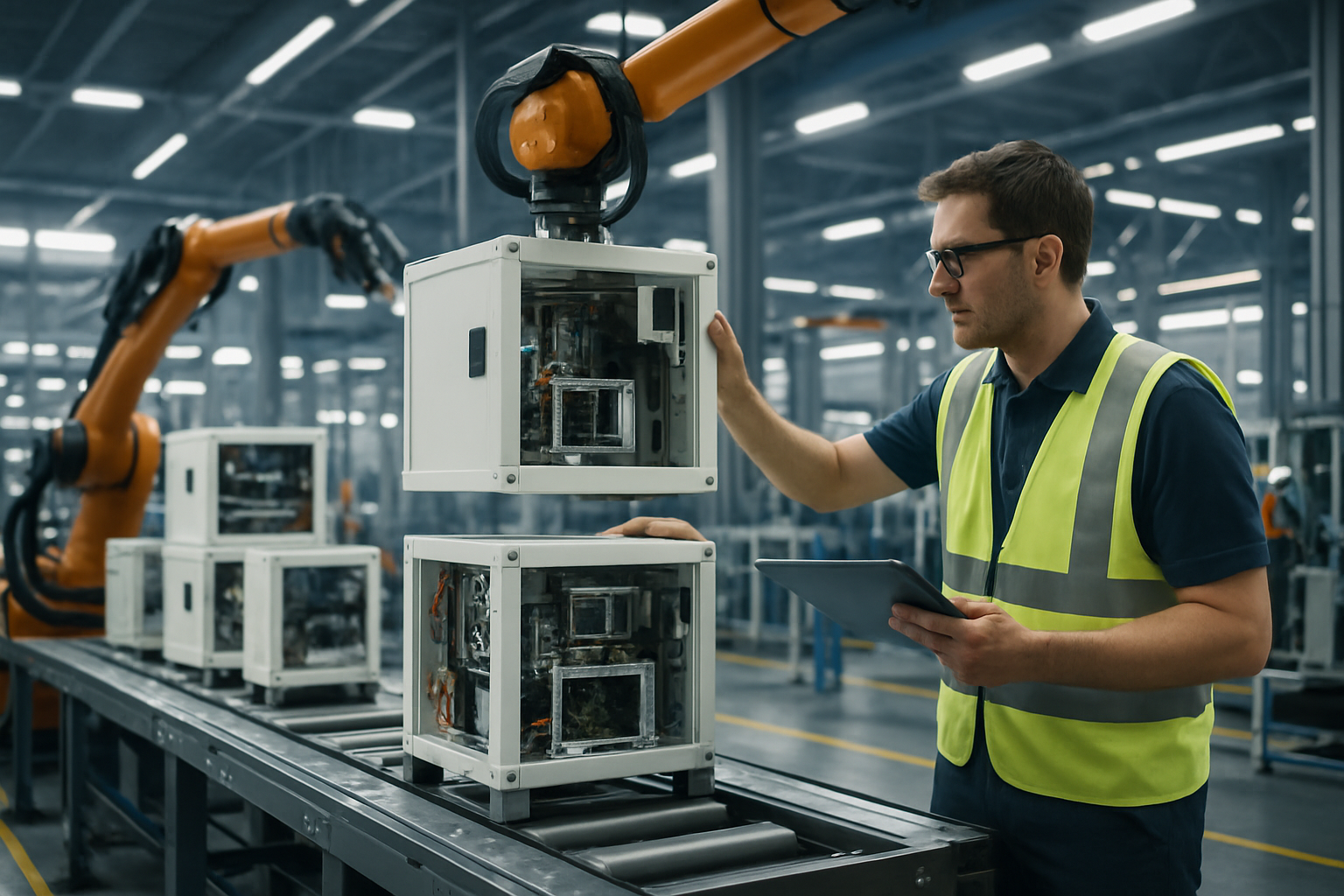Modular Production Systems: Reinventing Manufacturing Flexibility
Revolutionizing industrial landscapes, modular production systems are reshaping manufacturing paradigms. This innovative approach allows companies to adapt swiftly to market demands, optimize resource allocation, and streamline operations. As businesses seek agility in an ever-changing global marketplace, modular production emerges as a game-changing strategy for sustainable growth and competitive advantage.

The Evolution of Manufacturing Flexibility
The concept of modularity in manufacturing isn’t entirely new, but recent technological advancements have propelled it to new heights. Traditional manufacturing methods often relied on fixed production lines, which were efficient for mass production but lacked adaptability. As market demands became more diverse and unpredictable, manufacturers sought ways to increase flexibility without sacrificing efficiency.
The roots of modular production can be traced back to the mid-20th century when companies began experimenting with cellular manufacturing and flexible manufacturing systems. However, these early attempts were limited by the technology of the time. The advent of advanced robotics, sophisticated control systems, and the Internet of Things (IoT) has now made truly modular production systems a reality.
Key Components of Modular Production Systems
Modular production systems consist of several critical components that work in harmony to create a flexible and efficient manufacturing environment. These include:
-
Standardized Modules: The foundation of modular production lies in standardized, self-contained units that can perform specific tasks or processes. These modules can be easily connected, disconnected, and reconfigured as needed.
-
Plug-and-Play Interfaces: Standardized interfaces allow for seamless integration between modules, enabling quick setup and reconfiguration of production lines.
-
Advanced Control Systems: Sophisticated software and control systems coordinate the operation of various modules, optimizing workflows and ensuring smooth transitions between different configurations.
-
Flexible Material Handling: Automated guided vehicles (AGVs) and intelligent conveyor systems facilitate the movement of materials and products between modules, adapting to changing production layouts.
-
Data Analytics and AI: Advanced analytics and artificial intelligence help optimize module configurations, predict maintenance needs, and identify opportunities for process improvement.
Benefits and Challenges of Implementing Modular Production
The adoption of modular production systems offers numerous benefits to manufacturers across various industries. These advantages include:
-
Increased Flexibility: Companies can quickly adapt to changing market demands by reconfiguring production lines or introducing new products with minimal downtime.
-
Improved Efficiency: Modular systems allow for optimal resource allocation, reducing waste and improving overall productivity.
-
Scalability: Manufacturers can easily scale production up or down by adding or removing modules as needed.
-
Faster Time-to-Market: New products can be introduced more quickly by reconfiguring existing modules rather than designing entirely new production lines.
-
Enhanced Customization: Modular systems facilitate mass customization, allowing companies to offer a wider range of product variations without significant cost increases.
However, implementing modular production systems also presents several challenges:
-
Initial Investment: The upfront costs of implementing a modular system can be substantial, requiring careful financial planning and ROI analysis.
-
Complexity: Managing and coordinating multiple modules can be complex, requiring sophisticated control systems and skilled personnel.
-
Standardization: Developing standardized interfaces and ensuring compatibility between modules from different suppliers can be challenging.
-
Workforce Adaptation: Employees may need extensive training to operate and maintain modular production systems effectively.
Industry Applications and Case Studies
Modular production systems have found applications across various industries, demonstrating their versatility and potential:
-
Automotive Industry: Car manufacturers have embraced modular production to offer a wider range of vehicle models and options while maintaining efficiency. For example, Volkswagen’s Modular Transverse Matrix (MQB) platform allows the company to produce various vehicle models using standardized components and production processes.
-
Electronics Manufacturing: Companies like Foxconn have implemented modular production systems to quickly adapt to changing product specifications and demand fluctuations in the fast-paced electronics industry.
-
Pharmaceutical Production: Modular systems have enabled pharmaceutical companies to develop flexible, multiproduct facilities that can switch between different drug production processes rapidly and efficiently.
-
Aerospace Manufacturing: Aircraft manufacturers use modular production techniques to manage the complexity of assembling large aircraft while accommodating customization requests from different airlines.
-
Food and Beverage Industry: Modular production systems allow food manufacturers to quickly switch between different product lines, accommodating seasonal variations and changing consumer preferences.
Implementing Modular Production: Key Strategies
• Conduct a thorough analysis of current production processes to identify potential modularization opportunities.
• Invest in standardized interfaces and communication protocols to ensure seamless integration between modules.
• Develop a skilled workforce through comprehensive training programs focused on modular production techniques.
• Implement advanced data analytics and AI systems to optimize module configurations and production workflows.
• Foster partnerships with technology providers and module suppliers to stay at the forefront of modular production innovations.
As industries continue to evolve in response to global challenges and changing market dynamics, modular production systems offer a powerful solution for maintaining competitiveness and agility. By embracing this innovative approach, manufacturers can position themselves for success in an increasingly complex and fast-paced business environment. The future of manufacturing lies in flexibility, efficiency, and adaptability – all hallmarks of modular production systems.






